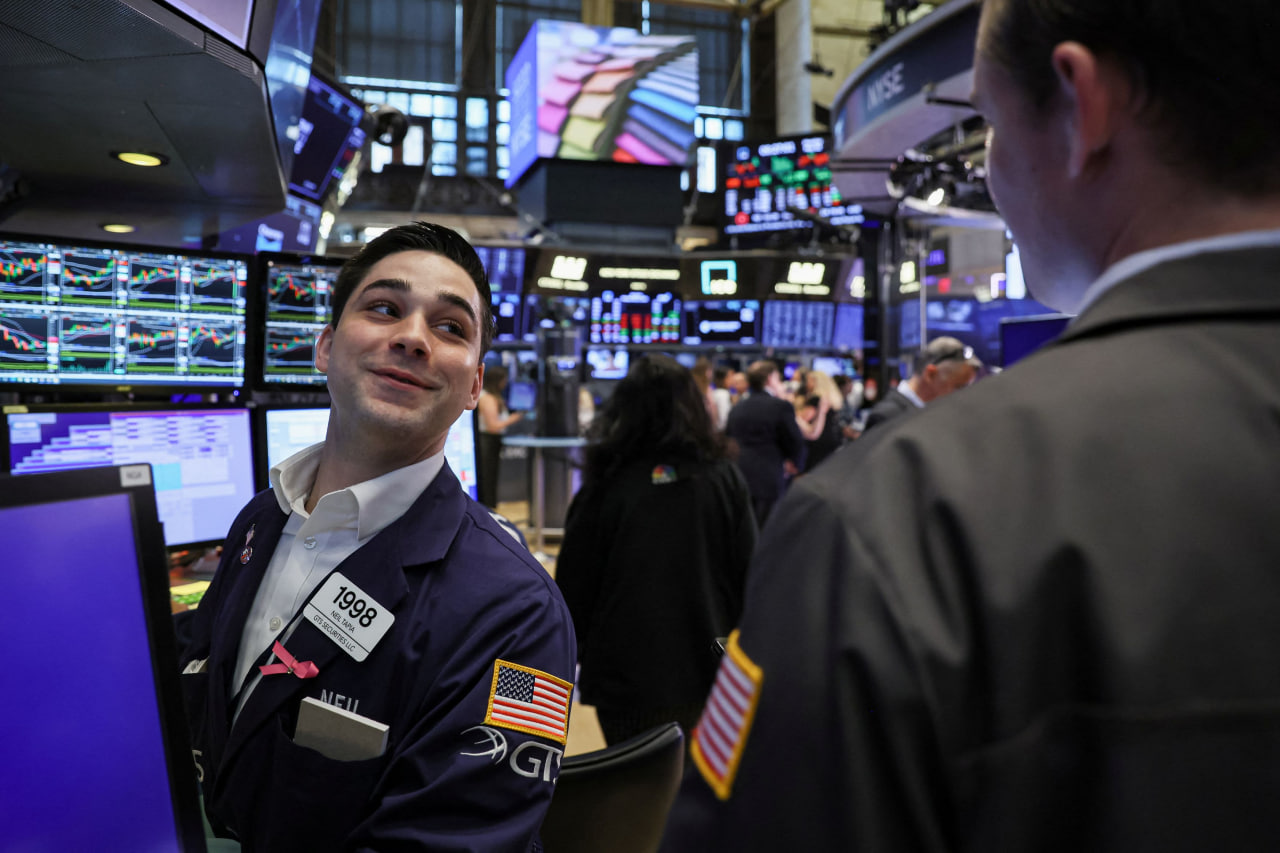Brazil's Market Meltdown: Unpacking the 2.67% Plunge and What it Means for Investors (Meta Description: Brazil stock market crash, Ibovespa index, Brazilian economy, investment strategies, emerging markets risk)
The Brazilian stock market took a nosedive on December 13th, 202X, plummeting a staggering 2.67%. Whoa! That's not just a blip on the radar; it's a full-blown market tremor sending shockwaves through investor portfolios worldwide. This wasn't some random fluctuation; it's a complex issue demanding a deeper dive than a simple headline can offer. As someone who's spent years navigating the often-treacherous waters of emerging market investments, I can tell you, this drop isn't just about numbers on a screen – it's about real people, real businesses, and real anxieties. We're talking about the livelihoods of millions, the future of promising companies, and the potential for significant gains… or crushing losses. This isn't just another financial news story; it's a cautionary tale, a case study in risk management, and a roadmap for navigating the unpredictable landscape of global finance. Understanding the intricacies of this market event requires more than just glancing at the closing bell; it demands a comprehensive analysis of the underlying economic factors, political climate, and investor sentiment that conspired to create this dramatic downturn. So buckle up, because we're about to embark on a journey into the heart of Brazil's economic turmoil, uncovering the reasons behind the fall, exploring its potential ramifications, and ultimately, charting a course for investors looking to navigate these turbulent waters successfully. We'll delve into the specifics, examining macroeconomic indicators, geopolitical influences, and the crucial role played by investor psychology. By the end of this in-depth analysis, you'll not only understand what happened, but why it happened, and what you can do to protect your investments and even potentially capitalize on future opportunities within this volatile but potentially rewarding market. This isn't just about numbers; it's about making smart, informed decisions in a world where the unexpected is the new normal.
Ibovespa Index Performance: Diving Deep into the December 13th Drop
The Ibovespa, Brazil's benchmark stock index, experienced a significant decline on December 13th, 202X, shedding 2.67% of its value. This wasn't a singular event; it was the culmination of several interconnected factors that collectively contributed to this market downturn. Let's break down the key elements, illustrating how each piece played a crucial role in the overall performance:
-
Global Market Sentiment: The interconnected nature of global finance means that events halfway across the world can have a ripple effect. A global economic slowdown, fears of a recession, or even a significant event in a major market (like the US or Europe) can quickly influence investor behavior in emerging markets like Brazil. This "contagion effect" can lead to a swift sell-off, as investors seek safer havens for their capital.
-
Political Uncertainty: Brazil's political landscape is frequently dynamic and can create uncertainty for investors. Policy changes, shifts in government priorities, and even political scandals can impact investor confidence and lead to market volatility. Increased political risk often translates into reduced foreign investment and capital flight.
-
Economic Indicators: Key economic indicators such as inflation, interest rates, and GDP growth provide crucial insights into the health of the Brazilian economy. Negative trends in these areas can trigger investor concern, resulting in market downturns. High inflation, for example, erodes purchasing power and can discourage investment.
-
Commodity Prices: Brazil is a major exporter of commodities such as soybeans, iron ore, and coffee. Fluctuations in global commodity prices directly impact the profitability of Brazilian businesses and influence investor sentiment. A drop in commodity prices can significantly impact the overall market performance.
-
Currency Fluctuations: The Brazilian Real (BRL) is subject to fluctuations against major currencies like the US dollar. A weakening Real can negatively impact investor confidence, as returns in foreign currency terms are reduced. This can also make foreign investment less attractive.
Table 1: Potential Contributing Factors to Ibovespa Decline
| Factor | Impact on Ibovespa | Evidence/Example |
|----------------------|----------------------------------------------------|------------------------------------------------------|
| Global Market Sentiment | Negative – risk-off sentiment leads to sell-off | Global stock market decline preceding the Ibovespa drop |
| Political Uncertainty | Negative – reduced investor confidence | Major political event or policy announcement |
| Economic Indicators | Negative – poor performance signals economic weakness | High inflation, slowing GDP growth, rising interest rates |
| Commodity Prices | Negative – lower export revenue, reduced profits | Drop in global prices of key Brazilian exports |
| Currency Fluctuations | Negative – reduced returns in foreign currency | Weakening Brazilian Real against the US dollar |
It's important to note that these factors often interact and reinforce each other, creating a complex web of influences that can be challenging to disentangle. The 2.67% drop wasn't likely caused by a single factor, but rather a confluence of events.
Understanding Emerging Market Risk: Brazil Case Study
Investing in emerging markets like Brazil presents both significant opportunities and substantial risks. The potential for high returns is alluring, but it's crucial to understand and manage the inherent volatility. This recent market decline serves as a stark reminder of the risks involved.
One key aspect of emerging market investment is the higher level of uncertainty compared to developed markets. Political instability, economic fluctuations, and currency volatility are all more pronounced in these regions. Diversification is key; don't put all your eggs in one basket (or one emerging market!). A well-diversified portfolio, incorporating different asset classes and geographies, can help mitigate some of the risks. This also includes carefully researching companies and understanding their specific vulnerabilities. Due diligence is paramount.
Furthermore, understanding the macroeconomic environment is critical. Keeping an eye on inflation rates, interest rates, currency exchange rates, and GDP growth figures can provide valuable insights into the overall health of the economy and its potential impact on your investments. Staying informed about current events and political developments is also crucial, as these factors can significantly impact market sentiment.
Frequently Asked Questions (FAQs)
Q1: What caused the recent drop in the Brazilian stock market?
A1: The 2.67% drop in the Ibovespa on December 13th, 202X, was likely a result of a combination of factors, including global market sentiment, political uncertainty, economic indicators, commodity price fluctuations, and currency movements. No single cause can be pinpointed definitively.
Q2: Is this a sign of a larger economic crisis in Brazil?
A2: A single market decline doesn't automatically signify a full-blown economic crisis. However, it's a warning signal that warrants close monitoring of economic indicators and political developments. Further analysis is necessary to determine the extent and longevity of the impact.
Q3: Should I sell my Brazilian stocks?
A3: The decision to sell depends on your individual investment strategy, risk tolerance, and long-term goals. Consult a financial advisor before making any rash decisions. Panic selling is rarely a good strategy.
Q4: Are there opportunities in this downturn?
A4: Market downturns can present buying opportunities for investors with a long-term perspective and a high-risk tolerance. However, thorough research and careful consideration are crucial before making any investment decisions.
Q5: How can I protect my investments in Brazil?
A5: Diversification, thorough due diligence, and a long-term investment strategy are key to mitigating risk. Staying informed about market trends and economic indicators is also crucial.
Q6: What are some reliable sources for monitoring the Brazilian market?
A6: Several financial news outlets, such as Bloomberg, Reuters, and The Financial Times, provide comprehensive coverage of the Brazilian market. The Brazilian Central Bank's website also offers valuable economic data.
Conclusion: Navigating the Brazilian Market
The 2.67% drop in the Ibovespa on December 13th, 202X, served as a potent reminder of the inherent risks associated with emerging market investments. While the potential for high returns is undeniably attractive, a thorough understanding of the underlying economic and political factors is crucial for making informed investment decisions. Diversification, due diligence, and a long-term perspective remain key elements of a successful investment strategy in this dynamic market. Remember, staying informed, adapting to changing circumstances, and seeking professional advice are essential for weathering the storms and capitalizing on the opportunities that emerge in markets as volatile as Brazil's. The journey might be bumpy, but the potential rewards can be substantial for those who navigate the waters wisely.



